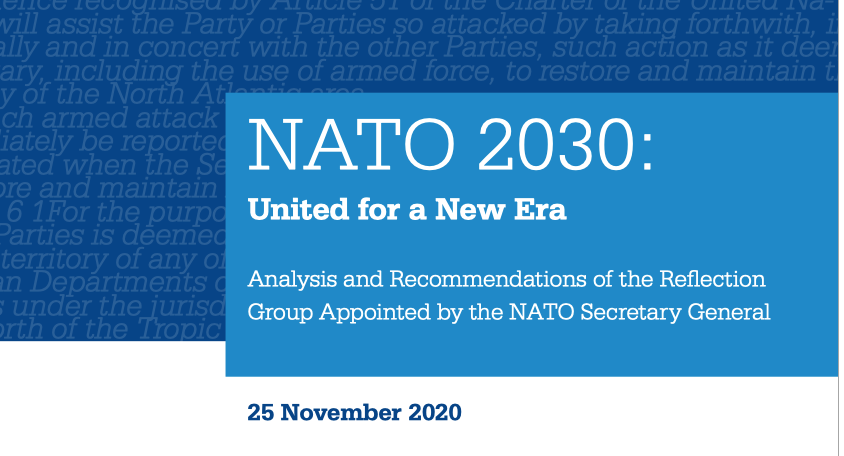NATO’s Perspective on the China Challenge
In the November 2020 report entitled, NATO 2030: United for a New Era, the nature of the Chinese challenge to NATO and Europe was described as follows:
The growing power and assertiveness of China is the other major geopolitical development that is changing the strategic calculus of the Alliance.
At their meeting in London in December 2019, NATO leaders stated that China’s growing influence and international policies present both opportunities and challenges that need to be addressed as an Alliance.
China poses a very different kind of challenge to NATO than Russia; unlike the latter it is not, at present, a direct military threat to the Euro-Atlantic area.
Nevertheless, China has an increasingly global strategic agenda.
China has an increasingly supported by its economic and military heft. It has proven its willingness global strategic agenda, to use force against its neighbours, as well as economic coercion and supported by its economic intimidatory diplomacy well beyond the Indo-Pacific region.
Nevertheless, China has an increasingly global strategic agenda, supported by its economic and military heft. It has proven its willingness to use force against its neighbours, as well as economic coercion and intimidatory diplomacy well beyond the Indo-Pacific region.
Over the coming decade, China will likely also challenge NATO’s ability to build collective resilience, safeguard critical infrastructure, address new and emerging technologies such as 5G, and protect sensitive sectors of the economy including supply chains.
Longer term, China is increasingly likely to project military power globally, including potentially in the Euro-Atlantic area.
China’s industrial policy and military-civil fusion (MCF) strategy are central components of this systemic challenge. Its military modernisation in all domains, including nuclear, naval, and missile capabilities, introduces new risks and potential threats to the Alliance and to strategic stability.
Its approach to human rights and international law challenges the fundamental premise of a rules-based international order.
Grave risks are posed by China in some critical sectors such as telecommunications, space, cyberspace, and new technologies, as well as disinformation campaigns. Since the start of the COVID-19 pandemic, China has conducted a disinformation campaign in numerous Allied states.
It has also committed widespread intellectual property theft with implications for Allied security and prosperity, as well as cyber attacks on NATO governments and societies which have been attributed by Allies as originating inside China.
At the same time, because of its scale and economic trajectory, China is a driver of global growth, trade and investment, and a significant investor in many NATO countries. It has begun to develop a strategic-commercial presence in the Euro-Atlantic Area via the Belt and Road Initiative, the 17+1 format, numerous bilateral agreements, and its MCF strategy.
Allies will continue to seek relations with China, build economic and trading ties and seek to work with China on issues such as climate change and biodiversity. China’s actions are central to prospects of tackling global challenges such as the Sustainable Development Goals, as it produces one-third of global emissions and almost half of global investment in green technology.
For an e-book version of the report, see the following:
The China challenge figured prominently in our book published in December 2020, The Return of Direct Defense to Europe: Meeting the Challenge of 21st Century Authoritarian Powers.
“Countering the Western liberal democratic alliances are the deepening relationships among the core drivers of 21st century authoritarianism, the People’s Republic of China and Putin’s Russia. These two powers play off of one another in working to reshape the rules of the game rather than working within the rules-based order that the liberal democracies have crafted over the past 50 years.
“It is this contest between the liberal democracies and the 21st century authoritarian powers which is resetting the nature of the challenge of the direct defense of Europe in the 2020s. This book provides a prologue to understand how that challenge is being shaped and framed.”
Meeting the Challenges of the 21st Century Authoritarian Powers
The Defense of Democracy Against the 21st Century Authoritarian Powers

